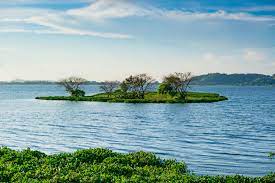Deepor Beel is a freshwater lake located in the city of Guwahati, in the northeastern Indian state of Assam. It is a natural wetland that covers an area of about 4.14 square kilometers and is situated at an elevation of 55 meters above sea level. The lake is considered to be a biodiversity hotspot and has been designated as a Ramsar site, which is a wetland of international importance.

Table of Contents
History and Importance of Deepor Beel
It has been an important source of fish for the people of Guwahati and the surrounding areas for many years. It is also a significant breeding ground for various fish species, as well as a habitat for many bird species. However, over the years, the lake has been facing numerous threats due to human activities, such as encroachment, pollution, and industrialization.
To protect Deepor Beel and its unique ecosystem, the Assam government, along with various NGOs and local communities, has been working to conserve and restore the lake. In 2002, Deepor Beel was declared a Ramsar site, which brought it under international protection.
Biodiversity of Deepor Beel
It is home to a diverse range of flora and fauna, including over 219 species of birds, 20 species of mammals, and 30 species of reptiles and amphibians. Some of the notable bird species found in the lake include the Lesser Whistling Duck, Pintail Snipe, Common Moorhen, and Purple Swamphen. The lake is also an important breeding ground for the Greater Adjutant Stork, a globally endangered species.
Apart from birds, Deepor Beel is also home to several species of fish, including the Rohu, Catla, and Mrigal. These fish species are an important source of food for the local communities.
Conservation Efforts
The conservation efforts involve various stakeholders, including the Assam government, NGOs, and local communities. Some of the measures that have been taken to conserve the lake include:
- Creating awareness among local communities about the importance of the lake and the need to protect it
- Banning fishing in the lake during the breeding season to protect the fish species
- Regulating the discharge of untreated sewage and effluents into the lake
- Planting trees and other vegetation around the lake to prevent soil erosion and maintain the ecosystem
Conclusion
Deepor Beel is a unique wetland that plays a crucial role in the biodiversity of Assam. It is an important source of livelihood for the local communities and a habitat for many endangered species. The conservation efforts at the lake have shown positive results, and it is hoped that with continued efforts, Deepor Beel will continue to thrive as a biodiversity hotspot in Assam.
Important Links